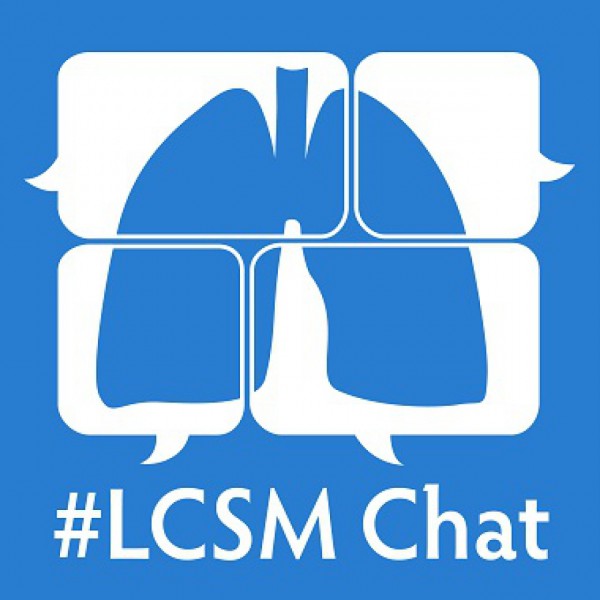#LCSM Chat Topic 02-Sep-2021– It’s Your Life: Be an Engaged Patient

#LCSM Chat on Twitter is back from our summer hiatus! This Thursday 9/2 at 5pm PT (8pm ET) our topic will be “It’s Your Life: Be an Engaged Patient.” Patients who are engaged in their own healthcare have better outcomes.
Some of the “old timer” patient and advocates in the cancer community will be around to help newbie and experienced survivors learn the ropes of being an engaged patient. This chat is open to ALL cancer communities–everyone can benefit from this discussion.
#LCSM Chat co-moderator and cancer research advocate Janet Freeman-Daily (@JFreemanDaily) will lead our discussion using the following topics:
- T1: What is an engaged patient?
- T2: What’s so great about being an engaged patient?
- T3: How does one become an engaged patient?
- T4: How can physicians and engaged patients work together effectively?
If you’re new (or intimidated) by tweet chats, look at this primer. As #LCSM Chat cofounder Deana Hendrickson says, “I’m a technologically challenged klutz. If I can join a tweet chat, you can too!” Please join us this Thursday night. We’re a super friendly bunch. Remember to include #LCSM in ALL your tweets so the other chat participants can see them. See you then!
#LCSM Chat Topic 6-May-2021: The Hows and Whys of Cancer Research Advocacy
Cancer patient advocates first appeared decades ago, in the breast cancer community. Patient advocates are dedicated to supporting patients and their loved ones, improving lung cancer education and awareness, and generating funds for advocacy and research. With the advent of targeted therapies and immunotherapies for many types of cancer, the past ten years have seen a growing group of patients, survivors, and caregivers who have lived with cancer long enough to become active, knowledgeable advocates for their cancer community.
There is another type of cancer patient advocate called a “research advocate.” Research advocates are volunteers with a personal connection to cancer who are passionate about helping research translate into meaningful outcomes for patients and their families. Research advocacy provides perspective from the cancer patient community to help research focus on the questions most important to patients and design studies and trials that have a better chance of addressing these questions. Many oncology-focused organizations such as the National Cancer Institute (NCI), NCI Specialized Programs of Research Excellence (SPOREs), SWOG, academic research centers, and industry find value in research advocacy. Several organizations(e.g., Research Advocacy Network, Cancer Information & Support Network, Progress for Patients, AACR Scientist↔Survivor Program, NBCC Project LEAD, IASLC STARS) have programs and materials designed to educate and support cancer research advocates. There are even formal and informal networks for research advocates.
However, the group of active cancer research advocates is still small. The majority of those in the cancer community are unaware of their existence, contributions, and capabilities.
On Thursday, May 6th, at 8 pm Eastern Time (5 pm Pacific), #LCSM Chat will discuss research advocates and how they can contribute to research. Moderator and cancer research advocate Janet Freeman-Daily (@JFreemanDaily) will lead our discussion using the following topics:
- T1: What is a cancer research advocate? How do research advocates differ from patient advocates?
- T2: How do cancer research advocates bring value to research? What specific inputs are helpful in different types of research efforts?
- T3: What characteristics and skills are useful to a successful cancer research advocate?
- T4: How can the cancer community develop more cancer research advocates? What resources are available to learn about research advocacy?
- T5: How can we help the cancer community make best use of research advocates?
Please join us, and bring your experiences and wisdom! Remember to include #LCSM in ALL your tweets so the other chat participants can see them. You can read a primer on participating in the chat here. We look forward to chatting with you!





You must be logged in to post a comment.